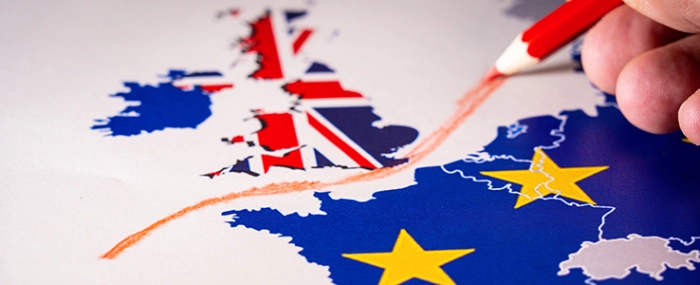
© Ivan Marc Shutterstock
Business |
Prepare, adapt & overcome - how ‘to Brexit’
The looming, but yet unknown, effects of Brexit have forced companies to prepare for whatever may come. But how does one really prepare for unknown consequences?
One of the EU’s biggest achievements, if not the biggest, is the establishing of a single market. Every member state is guaranteed free movement of not only goods and capital, but also services and labour. This is perhaps, or at least argued to be, the greatest loss for the UK’s manufacturing industry.
A company that has prepared itself for any and all potential effects that may come is capacitive touch technology provider, TouchNetix.
The company designs products and solutions for a diverse set of projects using all of the major capacitive touch driver IC’s and of course using their own aXiom driver IC.
However, something that might very much be in the company’s favour – regardless of how Brexit will happen, deal or no deal – is the company’s actual operations set-up.
The fact that TouchNetix has a number of direct factory partnerships will allow the company to tackle potential hurdles that Brexit might bring. The company has manufacturing partners in not only the UK, but also in Korea and China. Each factory in turn has a unique product manufacturing base and capabilities, allowing TouchNetix to address a range of customer requirements.
So, despite already being strategically set up to handle different scenarios, which could inhibit or restrict trade and cause logistic headaches, the company is still taking precautions and Evertiq had the opportunity to chat with Chris Ard, Managing Director & Director of Business Development at TouchNetix. What steps are you taking to prepare for a "worst case scenario"? “TouchNetix has spent a significant amount of time understanding what might happen in the case of a ‘no deal’ exit from the EU – widely considered to be a ‘worst case’ scenario,” says Mr. Ard. TouchNetix has been on three courses/seminars organised by the government and by business associations and has followed up all areas suggested as potentially problematic for the company. “Our conclusion is that the way we do business will not be directly affected by leaving the EU in an uncontrolled way unless the politicians decide to cause problems such as import delays specifically out of spite.” According to Mr. Ard, TouchNetix is – and has always been – a business that exports the majority of its products directly from its partner factories (both in Asia and the UK) into the EU. In truth, almost nothing will change for the Asian facilities, whichever Brexit scenario we are talking about “For the UK factory, we will need to complete new customs paperwork (automatically generated by our ERP system) which is not currently needed. Our shipping partners are all well prepared for any changes. It's possible that the shipping costs may increase slightly although none have said this is the case yet.” In your opinion, what are the biggest risk factors that Brexit poses to productivity in the country? “I think that it will be quite different across different sectors of the economy with agriculture, automotive and business associated with providing EU wide services seeing the biggest effects due to tariffs and tight supply chains. Our sector will see minimal effects we think,” He continues: “Productivity in the UK has been held back over recent years by the ability to import low cost labour in place of investment in automation and innovation and so I expect this could be reversed somewhat and for productivity to improve.” As with all major changes, Brexit will bring forth the need for companies to react and adjust to new market realities; something that Chris Ard touches on. “One of the biggest factors which will come into play is that businesses will be shaken out of complacency which has developed over the years and will find ways to adapt to anything new and will see new opportunities for sales and services outside of the EU which will now appear to be on a more equal basis that those same opportunities inside the EU,” How will Brexit, regardless of deal or no-deal, affect your relationship with your EU-based customers and suppliers? “Our discussions indicate a mixed bag of attitudes, none of which seem to be particularly negative from the point of view of doing business with us, particularly as the majority of our products attract zero tariffs. Most companies we deal with buy competitive product to ours from Asia and for this case there is no change, even to the amount of paperwork involved,” says Mr. Ard and continues. “Overall, we don’t see any major issues or hostility to us leaving the EU by our suppliers or customers, at least not at this point.”Chris Ard - © TouchNetix


